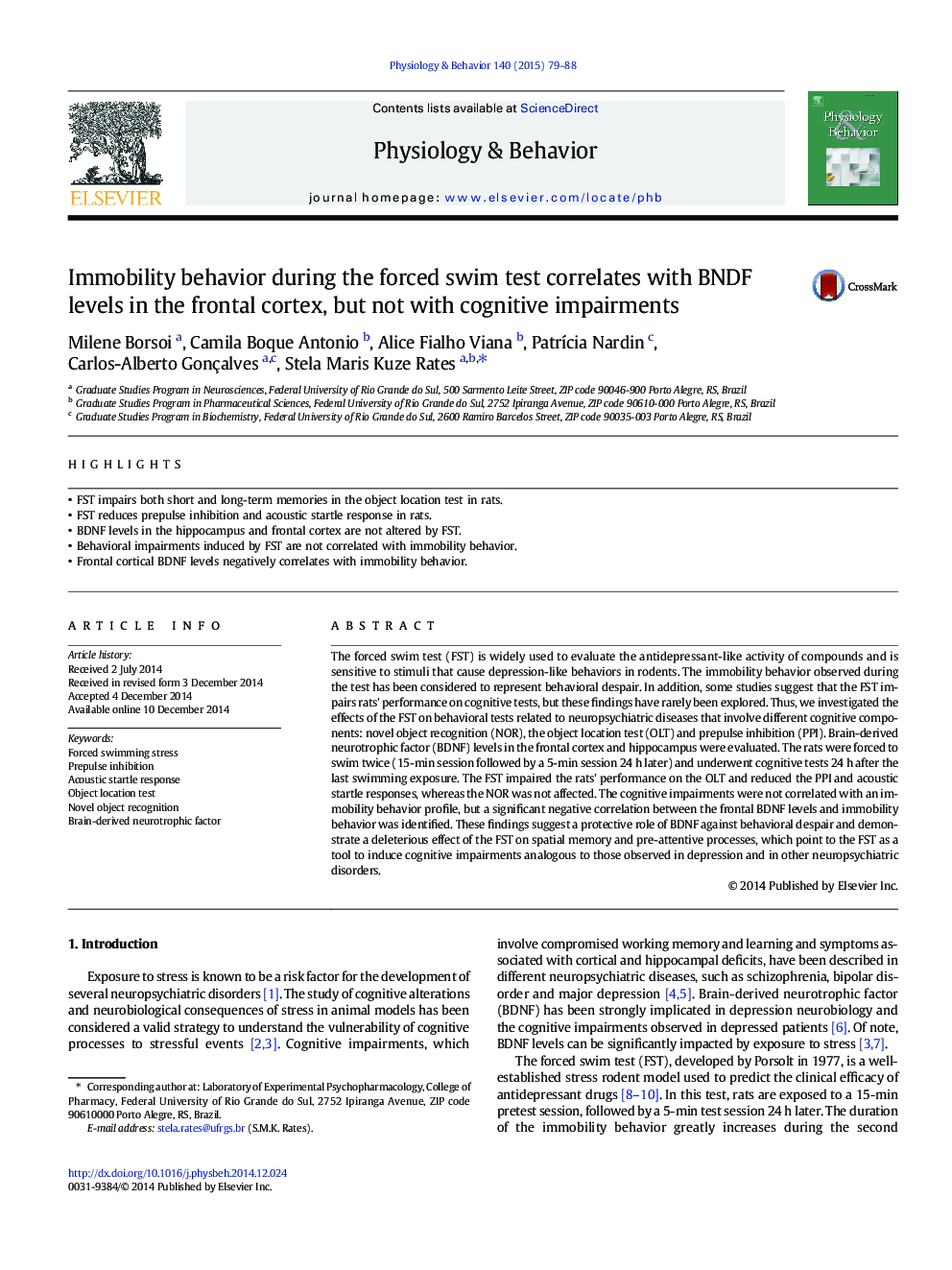| Article ID | Journal | Published Year | Pages | File Type |
|---|---|---|---|---|
| 5923811 | Physiology & Behavior | 2015 | 10 Pages |
Abstract
The forced swim test (FST) is widely used to evaluate the antidepressant-like activity of compounds and is sensitive to stimuli that cause depression-like behaviors in rodents. The immobility behavior observed during the test has been considered to represent behavioral despair. In addition, some studies suggest that the FST impairs rats' performance on cognitive tests, but these findings have rarely been explored. Thus, we investigated the effects of the FST on behavioral tests related to neuropsychiatric diseases that involve different cognitive components: novel object recognition (NOR), the object location test (OLT) and prepulse inhibition (PPI). Brain-derived neurotrophic factor (BDNF) levels in the frontal cortex and hippocampus were evaluated. The rats were forced to swim twice (15-min session followed by a 5-min session 24Â h later) and underwent cognitive tests 24Â h after the last swimming exposure. The FST impaired the rats' performance on the OLT and reduced the PPI and acoustic startle responses, whereas the NOR was not affected. The cognitive impairments were not correlated with an immobility behavior profile, but a significant negative correlation between the frontal BDNF levels and immobility behavior was identified. These findings suggest a protective role of BDNF against behavioral despair and demonstrate a deleterious effect of the FST on spatial memory and pre-attentive processes, which point to the FST as a tool to induce cognitive impairments analogous to those observed in depression and in other neuropsychiatric disorders.
Keywords
Related Topics
Life Sciences
Biochemistry, Genetics and Molecular Biology
Physiology
Authors
Milene Borsoi, Camila Boque Antonio, Alice Fialho Viana, PatrÃcia Nardin, Carlos-Alberto Gonçalves, Stela Maris Kuze Rates,
